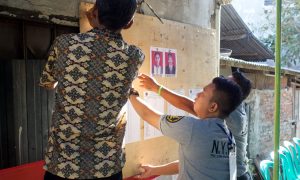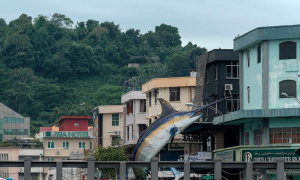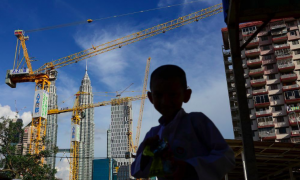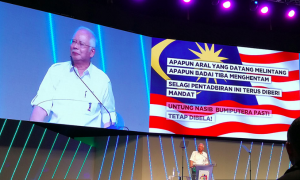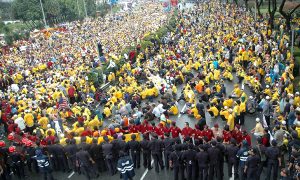Nearly two decades of decentralisation have shown the promise and challenges for Indonesia's civil society.
Archives
Civic structures and uncivil demands in Indonesia
Looking at Indonesia's grassroots neighbourhood associations helps us understand the perils of aligning civil society with elite interests.
Scratching the itch out east with Warisan
Can former minister and prime minister Najb Razak's ‘good friend’ Shafie Apdal sweep out Sabah's incumbents at GE14, and end up delivering power to Mahathir's opposition?
Kartini and ‘Kartini’
On the many meanings of Hari Kartini, Indonesia's annual celebration of its most famous colonial-era feminist thinker.
Lost in race between first world and third
Reform-minded Malaysians are fatigued after two missed opportunities since 2008, with today's centrifugal politics generating even more social tensions. Not even Dr Mahathir’s surprise (re)emergence can mend those fractures, as Malaysians dream of the First World but still struggle in the Third as inequality worsens.
Ghosts in the machine
An in-depth investigation into the land deals behind the downfall of one of Indonesia's most senior judges.
Perpetual policy and its limited future as reforms stall
Reforming Bumiputera policy is a colossal project both rival coalitions are reluctant to tackle. Yet the political consensus, while striving to transcend ethnic policies in rhetoric, misconstrues and ignores the embedded preferential regime.
Lost in Translation: Jawa Pos
Foreign correspondent and historian Frank Palmos reflects on his first translating job in Java in 1961.
Desperation in the Indonesian diaspora
The global success of a motorbike gang with roots in the Netherlands’ Indonesian community is indicative of the socioeconomic marginalisation of many Indonesian migrants.
Sabah and its GE14 deliverance from nationalised identity
Sabah needs leaders and statesmen determined to solve its long overdue need for autonomy, without fear of injuring a federal government's pride.
From the streets to the courtroom: judicial electoral contestation
Bersih’s legal strategy to check on electoral integrity has exposed and revealed much about the redelineation process, testing the relationships between Malaysia’s political institutions.
Sukmawati’s saving grace
When you’re accused of blasphemy, displays of humility and oligarchic pedigree may be the best defence.
 Facebook
Facebook  Twitter
Twitter  Soundcloud
Soundcloud  Youtube
Youtube  Rss
Rss 
